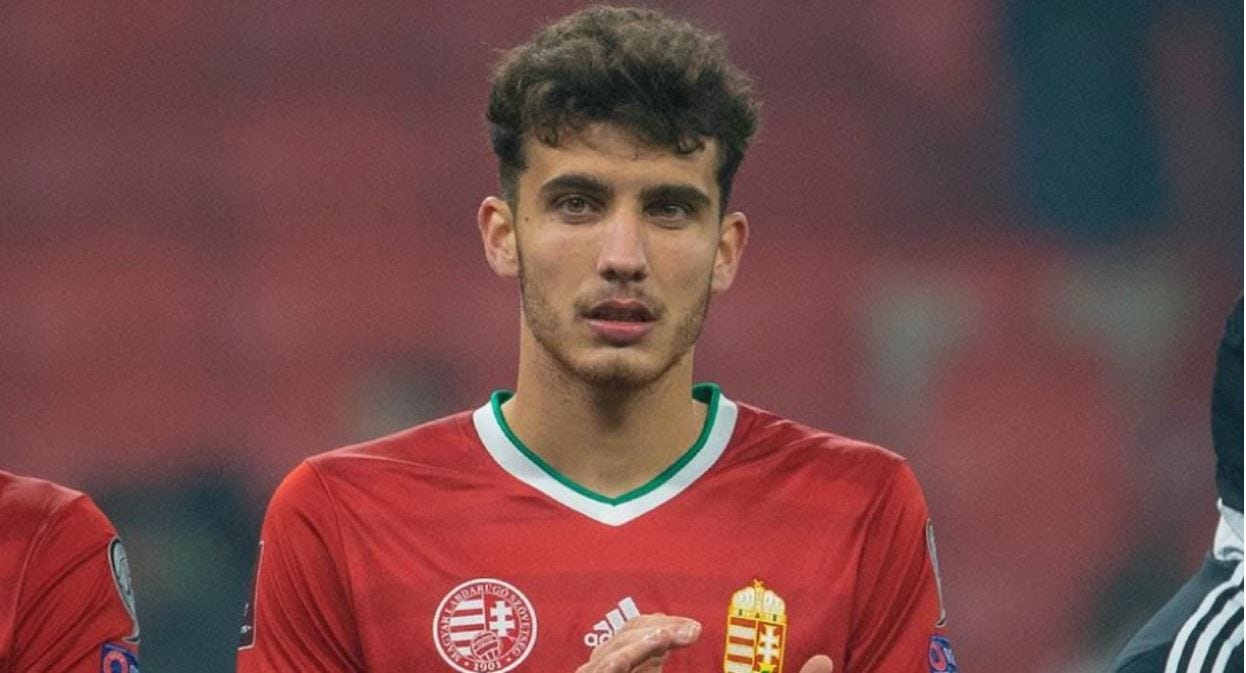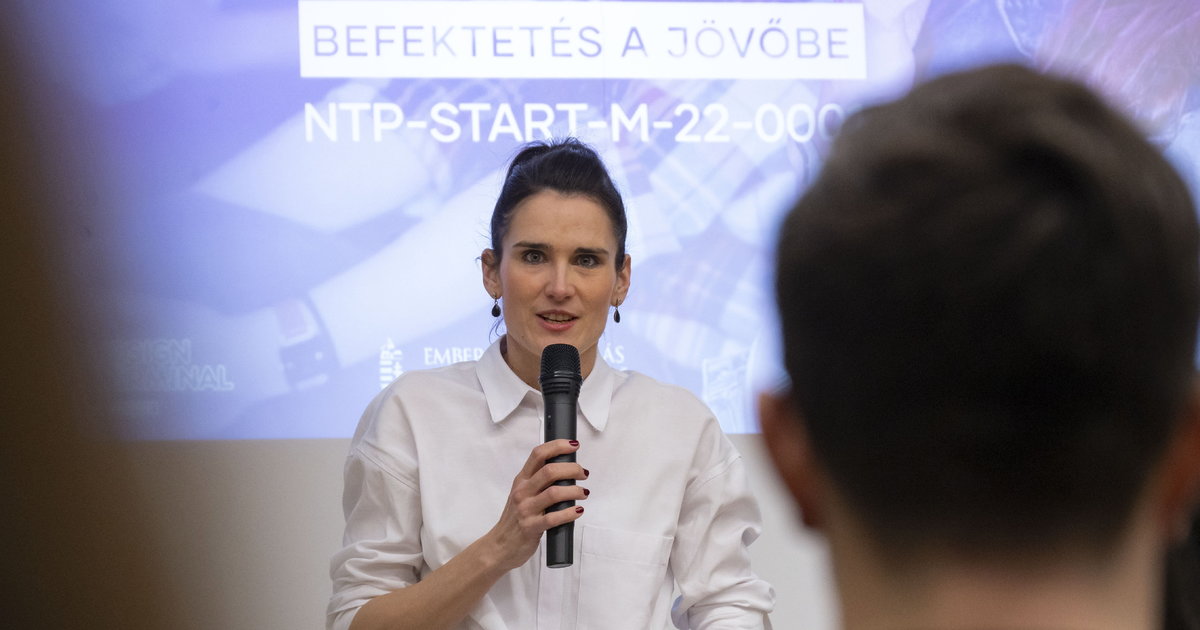The young Hungarian player can play in a team with his childhood favorite
The Hungarian defender has been playing for Parma for years, and is currently trying to improve in the Italian second division.
The 20-year-old Hungarian national team defender, Balogh Botond, who plays in the Italian second division Parma, Penalty.com in that interview, he talked about the stage of his career so far, his future goals and his experiences at the Italian club.
– Fabio Pecchia worked alongside Rafa Benítez at Napoli and Real Madrid. What line-up and approach to the game did you develop in Parma?
– I know that he was Benítez’s assistant in Madrid and Naples, he speaks excellent Spanish, for example. Out of all the trainers here, I like his approach the best. For example, we try to put a lot more emphasis on ball possession, that is, playing with the ball rather than playing against the ball. Of course, not at the expense of the result. Also a change is that we play with four defenders instead of five. I also really like the fact that he says that we should not adapt to the opponent, but stick to our own concept. My former coaches used to hold three or four video training sessions a week, where for an hour we only analyzed the opponent’s tactics, which foot is stronger, where they will dribble. We knew everyone by name. In 20 games at Pecchia, it happened maybe twice that we analyzed the rival with such thoroughness. He trusts us and our own game. This is very positive for me.
“What does Pecchia want from you?”
– Even though I am the youngest member of the team and the defense, he asks me to manage our defense. Let my voice out, talk a lot on the pitch. And of course, to close my own area, I should try to get ahead of the submissions. You have great professional insights.
– Do you have to learn how to lead your peers even as the youngest, or are you a confident type of leader and it comes easily?
– When I joined the senior team at the age of 17, I had teammates like Bruno Alves, the Portuguese national team player, in the inside back position. I wouldn’t have yelled at him about what he was doing. I pulled myself together then. It’s not typical for me to be loud, but we have to communicate a lot on the pitch, and the fact that I speak Italian well now is a big help. In the beginning it was also different, I spoke English on the pitch, but I had many Italian teammates who didn’t understand what I was saying.
– I spoke with Attila Fiola recently, he thinks it’s strange that many clubs in Hungary don’t expect players to learn Hungarian at a basic level, even years later. Rather, local players have to adapt.
“It varies from coach to coach.” When I arrived in Parma, I was immediately enrolled in school, and I studied Italian several times a week for several hours. They felt that Italian was important. With one of our former trainers, Roberto D’Aversa, you could only speak Italian in the dressing room, while Enzo Maresca, who came from Manchester City, spoke Italian, French, Spanish and English. He went back to City, Pep Guardiola’s assistant. Now Pecchia also tells me to try to talk in Italian as much as possible, but he also speaks English well. Let’s face it, the Italian language is not as difficult as Turkish or, say, Flemish, it can be learned.
– In the last two or three years, were you teammates with national team players, Dejan Kulusevski, Matteo Darmian, Gervinho, Bruno Alves? What kind of relationship did you have with them, what did you learn from them?
– I could perhaps single out Bruno, with whom we played in the same position. He’s a very nice person, he did a lot for me, but if we didn’t do what we needed to in training or in a match, he yelled at us. All his thoughts revolved around football. If I sat next to him at lunch or when we went home, we didn’t talk about the girls together or the weather, but he explained how to move on the court or how not to feel the mistake of that day again. He was an amazingly professional minded player. When I was still an academician, sometimes on my days off I went to the training center to work out, or sat in the ice tub, or even went to the sauna. Bruno was almost always there, he devoted a lot of energy to the preparation.
– Is this also your experience of Goran Pandev and Gigi Buffon? What can you tell about them?
– Unfortunately, we were teammates with Goran Pandev for only six months, but from the beginning I knew him as a very kind and direct person. He liked to joke a lot in the dressing room, he got on well with everyone. We looked up to him, as he also won the Champions League with Internazionale. And Gianluigi Buffon is a living legend. I was a big Juve fan when I was little, I had a Buffon shirt and Buffon’s goalkeeper gloves. He is also very direct, he tries to help everyone, he also gives me a lot of advice on the field and during training. Of course, he can be serious, but even close to 45, he is almost always the first to engage in nonsense.
“As a little kid, I didn’t even dare to dream that I would play football in front of him, he was my favorite even then. Now that I got to know him and it turns out how good he is in civilian life, I am sure that he is the best goalkeeper of all time.”
Balogh testified about the situation, the problem of the Hungarian youth supply and Hungarian football.
The full interview YOU CAN READ IT HERE on the website of Büntető.com.

Don’t just watch your favorite team, but also bet on the result.





